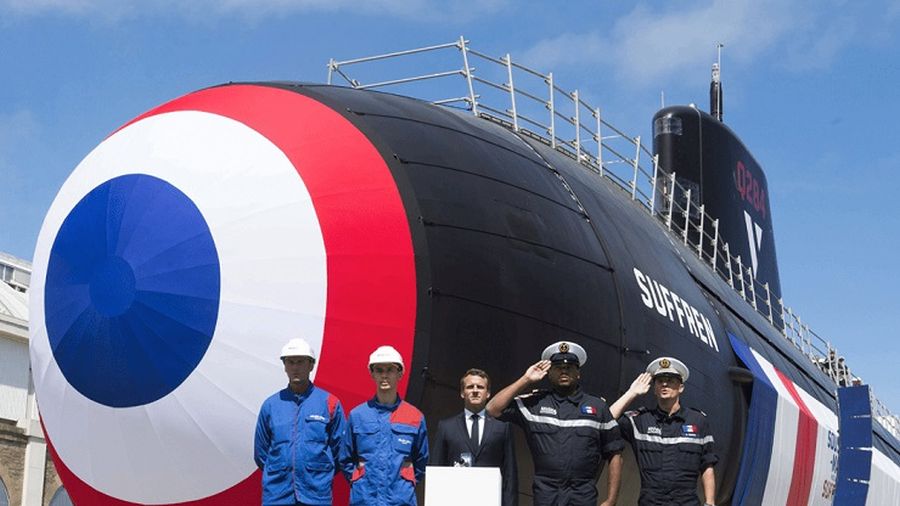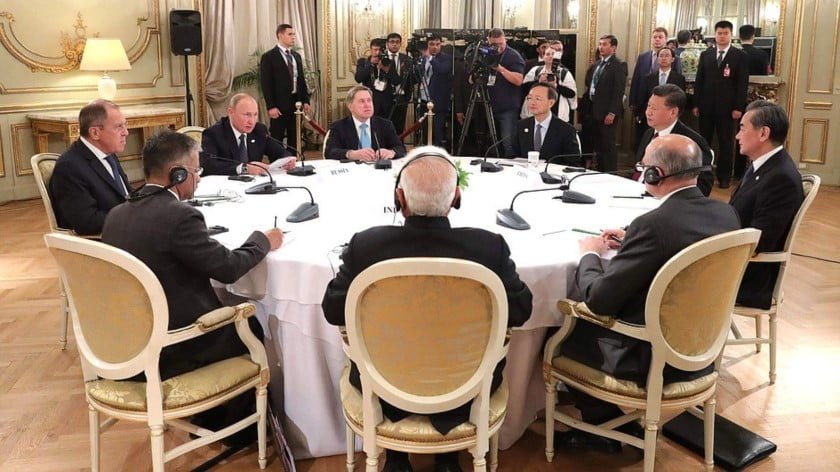The United States, United Kingdom, Australia Deal Contains Many Pitfalls
The recently announced deal between Australia, the United Kingdom and the United States for Australia to acquire nuclear submarines in place of the deal to buy conventionally powered French submarines has set off a wave of consequences among Australia’s allies that have caused shockwaves among members of the so-called western alliance.
There is much of the detail of this new deal that remains undisclosed. One of the ostensible reasons for cancelling the arrangement to buy French submarines was the cost, which has blown out to an extraordinary $90 billion. There has been absolutely no mention at all of the actual cost to Australia of buying the replacement eight nuclear submarines, but it is unlikely to be very much less than that, which would make the economic argument for cancellation wither and die.
Some evidence is emerging that the main impetus behind the deal was the United Kingdom Prime Minister Boris Johnson, for whom causing embarrassment to the French would be one of the least of his concerns. But even Johnson, for all his hubris, could not have anticipated the furious French reaction, and perhaps more particularly the embarrassment to the Americans.
In recent days the United States president Joe Biden has called his French counterpart Emanuel Macron in what from the White House record of the conversation was an obvious attempt by the Americans to rebuild their relationship with the French. One consequence of their discussion was an agreement that the two would meet when Biden next goes to Europe in November this year. No venue for the meeting was announced, but it seems likely that they will meet at the European Union headquarters in Brussels, Belgium.
The Anglo-Australia-United States deal has also caused some upset in both New Delhi and Tokyo, the capitals of the other two states that make up (with the United States and Australia) membership of the so-called Quad. The position of the Indians is the most interesting in this fall out.
India is playing a difficult game as a member of the Quad. As noted, the Quad is manifestly an anti-China arrangement, but that is a position that does not fit easily with India’s other arrangements in the Asian region. In particular, there has been almost no discussion of which I am aware of how India reconciles its membership of the Quad, which is clearly anti-China, with its membership of the Shanghai Corporation Organisation which is an arrangement it joined in 2017 and which clearly has China in a prominent role.
Another member of the SCO is Russia, with whom India has long had a good relationship and a country in a close relationship with China, a relationship that is in fact a military alliance although both countries are careful to avoid describing it as such. It is frankly very difficult to reconcile India’s alliance through the Quad with the United States at the same time as recognising its close and continued ties to Russia. The Indian Prime Minister Mr Modi was recently in Moscow and the Indians continue to buy Russian military equipment, including most recently an arrangement for India to buy a fleet of Russian fighter jets.
India will clearly have to make up its mind, sooner rather than later, precisely where its allegiances lie. The recent deal with Australia for the latter to buy eight United States submarines, a deal managed in secret that excluded not only the jilted French, but also the United States and Australia’s Quad partners of India and Japan. That deal certainly did nothing to cause the Indians to look more favourably on the Americans.
There is a growing body of evidence that the principal driver of the new Australian deal was the United Kingdom Prime Minister Boris Johnson. The British require little incentive to strike a blow against the French, but even Johnson may have been surprised at the vehemence of the French reaction. There is also growing evidence that the Americans were in fact presented with a fait accompli on the deal. There is no precedent for the disclosure of very sensitive United States submarine data to a third party such as Australia. United States spokesman have been careful to say that this deal is unprecedented and unlikely to be repeated.
There are a host of details that have yet to be revealed about how actual effect will be given to the project as announced. As it was announced, the plan provides for the submarines to be constructed in Australia. This announcement ignores the fact that Australia has absolutely no expertise in assembling nuclear powered submarines. It seems inevitable therefore that the construction will be heavily influenced by United States labour input, an affect the Australian government has been careful not to mention.
There are also other components of the deal which have received scant attention. One is an extension of United States naval presence in Australian ports. That these ships are likely carrying nuclear armaments is another factor that has received zero discussion.
An increased United States naval present in Australian waters also has implications for Australia in the event of hostilities between the United States and China. The likelihood of this happening is not small, and United States naming China as its principal adversary does nothing to reduce the risk. The Chinese government has already announced that Australia can expect to be a military target in the event of hostilities breaking out between the United States and China.
It is a consequence of the closer ties between Australia and the United States that the public is not prepared for. China already has the capacity to fire missiles at any Australian city and the delusional statements to the contrary by some Australian commentators do nothing to prepare the public for that reality.
The reality of being an actual target of Chinese rockets is something that the government does not wish to discuss. It seems to believe that being in a partnership with the United States will somehow protect them from the reality of the consequences of an all-out war between the United States and China.
In their anti-China rhetoric, the Americans also overlooked two things in particular. The first is China’s alliance with Russia. The Russians will certainly not allow any United States attack on China to go unanswered. The result would be devastating. The second factor is that China has huge goodwill around the world, which is increasing all the time, not least because of the activities of the Belt and Road Initiative which now encompasses more than 130 countries.
The world is a very different place than it was even two decades ago. The United States is reluctant to acknowledge that the world has changed and with it their power to be the determinant of change continues to represent the major threat to our future well-being.
Arming Australia with nuclear powered submarines does nothing to reduce that danger, and indeed measurably increases it.







